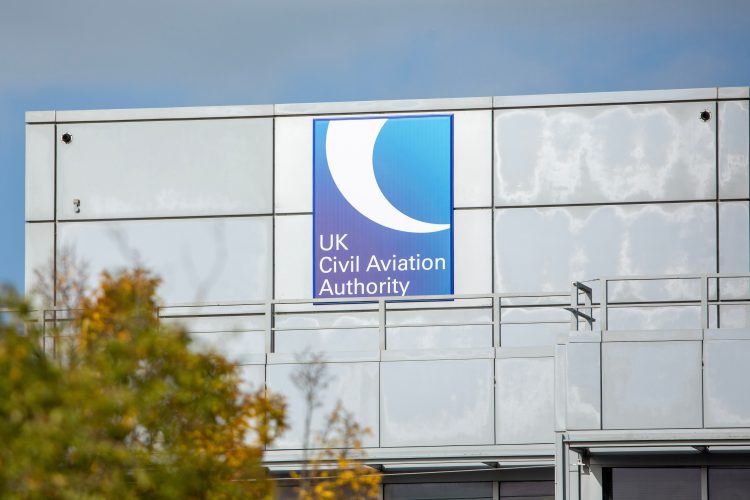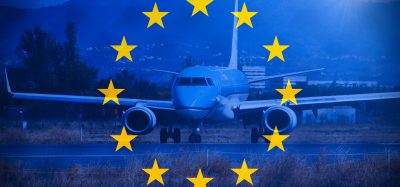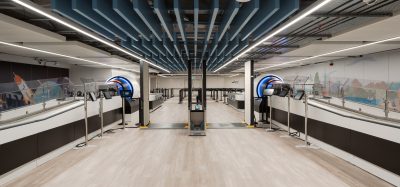UK Civil Aviation Authority has proposed the use of AI in the aerospace sector
Posted: 3 December 2024 | | No comments yet
The UK Civil Aviation Authority is developing an AI strategy to boost aerospace innovation, enhance efficiency, and maintain safety, ensuring trust from passengers to pilots.


The use of Artificial Intelligence (AI) in the UK aviation industry is being analysed by the UK Civil Aviation Authority (UK CAA). Two points have been proposed in enabling the aerospace sector’s use of AI and in supporting its own operations.
The new strategy addresses both the challenges and opportunities, with a focus on trust from passengers to pilots. It sets out the steps that will guide the regulation of AI within the aerospace industry and aims to enable innovation while also protecting people.
Tim Johnson, Director of Strategy and Policy at the UK Civil Aviation Authority, said:
Join us live: Shaping the Next Generation of Hold Baggage and Air Cargo Screening
Join us live for an insightful webinar on 11th December at 14:00 GMT, in collaboration with Smiths Detection, as we explore the strategic balance of operational efficiency, regulatory compliance, and sustainability in high-volume security environments.
This session offers a focused look into future-proofing your security strategy.
Key learning points
- Cost Reduction: Strategies to minimize bag travel time while simultaneously reducing operational costs.
- Regulatory Roadmap: Insights into the next wave of regulatory changes and their impact on future investment decisions.
- Sustainable Systems: Practical approaches to building sustainability into security systems and lowering the total cost of ownership (TCO).
- Scalable Solutions: Real-world examples of scalable systems supporting current airport growth and preparing for tomorrow.
Register now for expert insights, case studies, and actionable strategies on operational efficiency!
“AI is a technology that is being harnessed in many sectors, and aerospace is no exception.
“In doing so, we must ensure the benefits can be realised whilst maintaining the levels of safety and consumer protection that the public rightly expect.”
What can AI do?
AI has the potential to change aerospace for passengers, industry and regulation, including how we design planes, train pilots, plot routes and even navigate through the airport.
By safely adopting AI, aerospace could potentially see:
• Changes in how we control the skies using real-time data and predictive modelling to boost the efficiency and effectiveness of air traffic controllers.
• Better pilots than ever, trained on adaptive, data-driven simulations.
• Fewer delays through airports and air traffic control having use of AI tools that are able to foresee operational delays and conflicts.
• Opportunities where AI can make booking, checking in, boarding and arrival procedures more efficient, leading to reduced costs for consumers.
• More fuel-efficient flying as technology on board makes planes go further with less.
• AI assisted flying that analyses real time data to make routes quicker and more efficient, using weather data and flying conditions to maximum advantage.
• Cutting time spent at airports as AI smooths the processes behind the scenes that get you from your home to your holiday.
• Smoother landings with AI being able to support passengers deal with crosswinds and make micro-adjustments as the tyres hit the tarmac.
As AI technologies advance, they also bring issues that need to be assured, including reliability, trust and safety, all with appropriate regulatory oversight. The UK Civil Aviation Authority will introduce a roadmap so that the strategy set out today will enable the innovation of tomorrow. This supports the wider UK Government pro-innovation approach to regulating AI.
The regulator is working with organisations in the aerospace sector to identify emerging AI technologies and models. Engagement and collaboration with the sector, and passengers, is essential. By talking to the people it most affects the UK Civil Aviation Authority will continue to enable innovation and maintain the highest levels of safety and security.
Stay Connected with International Airport Review — Subscribe for Free!
Get exclusive access to the latest airport and aviation industry insights from International Airport Review — tailored to your interests.
✅ Expert-Led Webinars – Gain insights from global aviation leaders
✅ Weekly News & Reports – Airport innovation, thought leadership, and industry trends
✅ Exclusive Industry Insights – Discover cutting-edge technologies shaping the future of air travel
✅ International Airport Summit – Join our flagship event to network with industry leaders and explore the latest advancements
Choose the updates that matter most to you.
Sign up now to stay informed, inspired, and connected — all for free!
Thank you for being part of our aviation community. Let’s keep shaping the future of airports together!
Related topics
Artificial intelligence (AI), Data, Digital transformation, Economy, Passenger experience and seamless travel


















